FREEMUSIC07
Main » Oldies
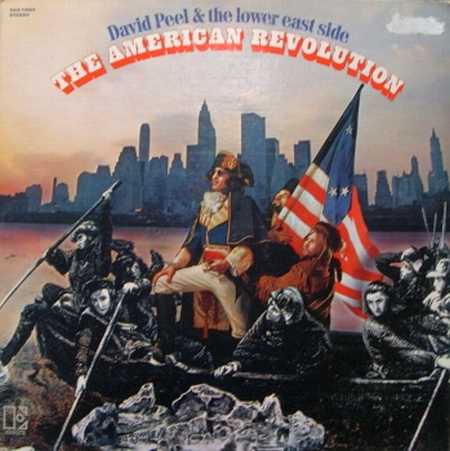 David Peel is a New York-based musician who first recorded in the late 1960s with Harold Black, Billy Joe White, Larry Adams and Dean White, performing as David Peel and the Lower East Side. Though his raw, acoustic "street rock" with lyrics about marijuana and "bad cops" appealed mostly to hippies at first, the sound and DIY ethic make him an important early performer of punk rock music. He has performed with artists ranging from B. B. King to Stevie Wonder to the Plastic Ono Band and GG Allin. David Peel and the Lower East Side Band was one of the first bands to regularly perform on cable TV in Manhattan on the public access channel of Manhattan Cable Television, as well as at the first Smoke-In concerts sponsored by the Yippies in New York City in Central Park. John Lennon devoted the first stanza of his "New York City" to David Peel. Lennon and his wife Yoko Ono subsequently produced Peel's third album, The Pope Smokes Dope. Concerned about major label censorship, Peel founded Orange Records to release his own recordings and also those of other independent artists such as: GG Allin & The Jabbers and Mozarts People. Peel is still actively recording and performing his music, planning the release of a CD-ROM-based book of photographs and enjoying a new audience through online services such as iTunes. The Japanese label, Captain Trip Records, has released an extensive boxed set of his music. David Peel recorded two successful albums on Elektra Records: Have a Marijuana and The American Revolution, establishing himself as one of the founders of what was to become the punk and new wave movements in England and America.01 - Lower East Side02 - Pledge Of Allegiance03 - Legalize Marijuana04 - Oink Oink05 - I Want To Get High06 - I Want To Kill You07 - Girls Girls Girls08 - Hey Mr. Draft Board09 - God10 - I'm A RunawayLINK David Peel is a New York-based musician who first recorded in the late 1960s with Harold Black, Billy Joe White, Larry Adams and Dean White, performing as David Peel and the Lower East Side. Though his raw, acoustic "street rock" with lyrics about marijuana and "bad cops" appealed mostly to hippies at first, the sound and DIY ethic make him an important early performer of punk rock music. He has performed with artists ranging from B. B. King to Stevie Wonder to the Plastic Ono Band and GG Allin. David Peel and the Lower East Side Band was one of the first bands to regularly perform on cable TV in Manhattan on the public access channel of Manhattan Cable Television, as well as at the first Smoke-In concerts sponsored by the Yippies in New York City in Central Park. John Lennon devoted the first stanza of his "New York City" to David Peel. Lennon and his wife Yoko Ono subsequently produced Peel's third album, The Pope Smokes Dope. Concerned about major label censorship, Peel founded Orange Records to release his own recordings and also those of other independent artists such as: GG Allin & The Jabbers and Mozarts People. Peel is still actively recording and performing his music, planning the release of a CD-ROM-based book of photographs and enjoying a new audience through online services such as iTunes. The Japanese label, Captain Trip Records, has released an extensive boxed set of his music. David Peel recorded two successful albums on Elektra Records: Have a Marijuana and The American Revolution, establishing himself as one of the founders of what was to become the punk and new wave movements in England and America.01 - Lower East Side02 - Pledge Of Allegiance03 - Legalize Marijuana04 - Oink Oink05 - I Want To Get High06 - I Want To Kill You07 - Girls Girls Girls08 - Hey Mr. Draft Board09 - God10 - I'm A RunawayLINK |
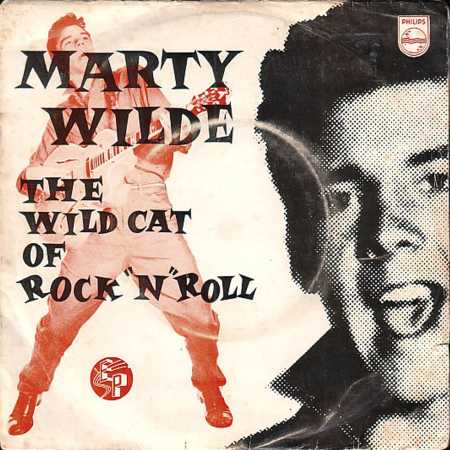 Marty Wilde is an English singer and songwriter. He was among the first generation of British pop stars to emulate American rock and roll, and is the father of pop singers Ricky Wilde, Kim Wilde and Roxanne Wilde. Wilde was performing under the name Reg Patterson at London's Condor Club in 1957, when he was spotted by impresario Larry Parnes. Parnes gave his protégées stage names like Billy Fury, Duffy Power and Dickie Pride, hence the change to Wilde. The 'Marty' came from the commended 1955 film, Marty. Wilde was signed to the British recording arm of Philips Records, with US releases appearing on the Epic label via Philips' reciprocal licensing agreement with Columbia Records Stateside. From mid 1958 to the end of 1959, Wilde was one of the leading British rock and roll singers, along with Tommy Steele and Cliff Richard. Wilde's backing group were called the Wildcats. At various times they featured Big Jim Sullivan on lead guitar; Tony Belcher on Rhythm Guitar; Bobbie Clarke on drums; plus Brian Locking on bass guitar and Brian Bennett on drums who both later joined The Shadows.01 - Wild Cat02 - Honeycomb03 - Love Bug Crawl04 - Afraid To LoveLINK Marty Wilde is an English singer and songwriter. He was among the first generation of British pop stars to emulate American rock and roll, and is the father of pop singers Ricky Wilde, Kim Wilde and Roxanne Wilde. Wilde was performing under the name Reg Patterson at London's Condor Club in 1957, when he was spotted by impresario Larry Parnes. Parnes gave his protégées stage names like Billy Fury, Duffy Power and Dickie Pride, hence the change to Wilde. The 'Marty' came from the commended 1955 film, Marty. Wilde was signed to the British recording arm of Philips Records, with US releases appearing on the Epic label via Philips' reciprocal licensing agreement with Columbia Records Stateside. From mid 1958 to the end of 1959, Wilde was one of the leading British rock and roll singers, along with Tommy Steele and Cliff Richard. Wilde's backing group were called the Wildcats. At various times they featured Big Jim Sullivan on lead guitar; Tony Belcher on Rhythm Guitar; Bobbie Clarke on drums; plus Brian Locking on bass guitar and Brian Bennett on drums who both later joined The Shadows.01 - Wild Cat02 - Honeycomb03 - Love Bug Crawl04 - Afraid To LoveLINK |
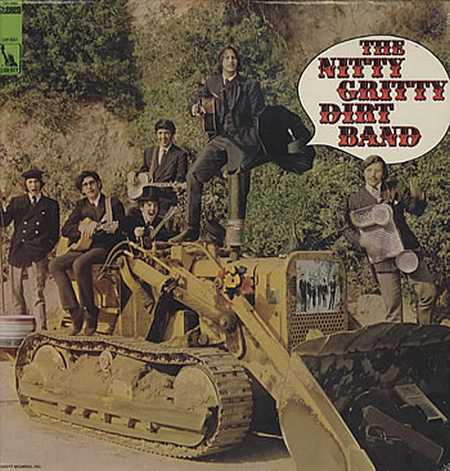 The Nitty Gritty Dirt Band is an American country-folk-rock band that has existed in various forms since its founding in Long Beach, California in 1966. The group's membership has had at least a dozen changes over the years, including a period from 1976 to 1981 when the band performed and recorded as The Dirt Band. Constant members since the early times are singer-guitarist Jeff Hanna and drummer Jimmie Fadden. Multi-instrumentalist John McEuen was with the band from 1966 to 1986 and returned during 2001. Keyboardist Bob Carpenter joined the band in 1977. The band is often cited as instrumental to the progression of contemporary country and roots music. Nitty Gritty Dirt Band is the first album by the band released in 1967. This album reached 161 on the US Charts. The single "Buy For Me The Rain" reached 45 on the US charts.01 - Buy For Me The Rain02 - Euphoria03 - Melissa04 - You Took The Happiness05 - Hard Hearted Hannah06 - Holding07 - Song To Jutta08 - Dismal Swamp09 - I Wish I Could Shimmy Like My10 - Crazy Words, Crazy Tune11 - You're Gonna Get It In The EndLINK The Nitty Gritty Dirt Band is an American country-folk-rock band that has existed in various forms since its founding in Long Beach, California in 1966. The group's membership has had at least a dozen changes over the years, including a period from 1976 to 1981 when the band performed and recorded as The Dirt Band. Constant members since the early times are singer-guitarist Jeff Hanna and drummer Jimmie Fadden. Multi-instrumentalist John McEuen was with the band from 1966 to 1986 and returned during 2001. Keyboardist Bob Carpenter joined the band in 1977. The band is often cited as instrumental to the progression of contemporary country and roots music. Nitty Gritty Dirt Band is the first album by the band released in 1967. This album reached 161 on the US Charts. The single "Buy For Me The Rain" reached 45 on the US charts.01 - Buy For Me The Rain02 - Euphoria03 - Melissa04 - You Took The Happiness05 - Hard Hearted Hannah06 - Holding07 - Song To Jutta08 - Dismal Swamp09 - I Wish I Could Shimmy Like My10 - Crazy Words, Crazy Tune11 - You're Gonna Get It In The EndLINK |
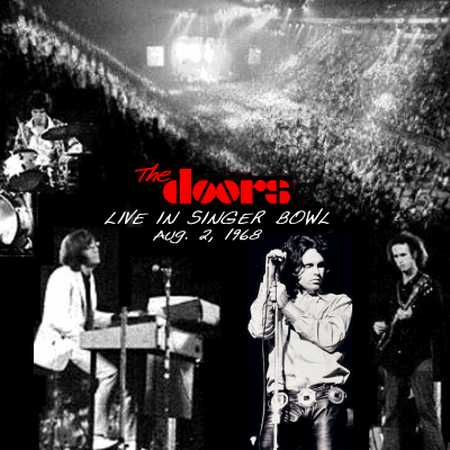
The Doors - 1968 - Singer BowlA hot, humid night in Flushing Meadows Park, Queens, New York. The date was Friday, August 2nd, 1968. The Singer Bowl built by the Singer Sewing Machine Company for the 1964 World's Fair was an oval-shaped arena with steep-sloped bleachers and a central rotating stage, powered by electric motors. A kind of rotating theater-in-the-round. This night would be the kick-off show for that summer's New York Rock Festival, which extended through the month of August. There were three bands booked to play. Absent from the handbill circulating throughout the city was a local act, Kangaroo. Next up was a British band still somewhat underground to American audiences, in spite of having already released several records they called themselves the Who. Headlining the show was a group whose favorite crowds were in the Big Apple, though they originated across the continent in Los Angeles. That, of course, was the Doors.01 - Backdoor Man02 - Five To One03 - Break On Through04 - When The Music's Over05 - Vast Radiant Beach06 - Wild Child07 - Wake Up08 - Light My Fire09 - The EndLINK The Doors - 1968 - Live L.A ForumThere are only two known sources for this audience recording.01 - Tell All The People02 - Love Me Two Time03 - Who Scared You04 - Spanish Caravan05 - The Crystal Ship06 - Wild Child07 - Touch MeLINK |
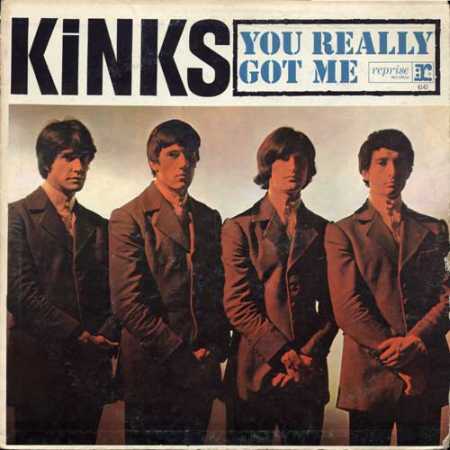 Kinks debut album from 1964, released with three tracks missing as You Really Got Me in the United States.01 - Beautiful Delilah02 - So Mystifying03 - Just Can't Go to Sleep04 - Long Tall Shorty05 - You Really Got Me06 - Cadillac07 - Bald Headed Woman08 - Too Much Monkey Business09 - I've Been Driving on Bald Mountain10 - Stop Your Sobbing11 - Got Love If You Want ItLINK Kinks debut album from 1964, released with three tracks missing as You Really Got Me in the United States.01 - Beautiful Delilah02 - So Mystifying03 - Just Can't Go to Sleep04 - Long Tall Shorty05 - You Really Got Me06 - Cadillac07 - Bald Headed Woman08 - Too Much Monkey Business09 - I've Been Driving on Bald Mountain10 - Stop Your Sobbing11 - Got Love If You Want ItLINK |
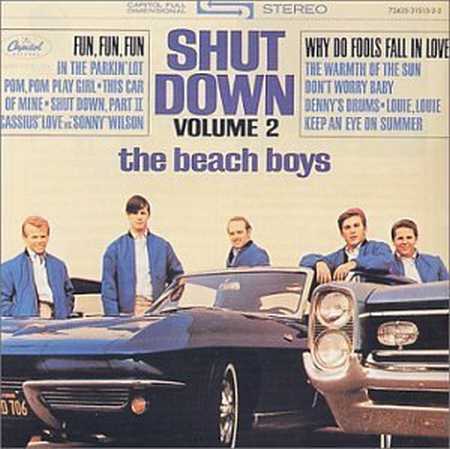 Shut Down Volume 2 is the fifth studio album by The Beach Boys, and the first of four they would release in 1964. The album's "Volume 2" refers to it being a follow-up to the 1963 hot rod compilation Shut Down, released by the band's label, Capitol Records, which included "409" and "Shut Down" but was not a Beach Boys album. Shut Down Volume 2 hit #13 in the US charts during a chart stay of 38 weeks. 01 - Fun, Fun, Fun02 - Don't Worry Baby03 - In the Parkin' Lot04 - 'Cassius' Love Vs. 'Sonny' Wilson05 - The Warmth of the Sun06 - This Car of Mine07 - Why Do Fools Fall in Love08 - Pom Pom Play Girl09 - Keep an Eye on Summer10 - Shut Down, Pt. 211 - Louie, Louie12 - Denny's Drums13 - Fun, Fun, Fun [Single Version]14 - In My Room [German Version]15 - I Do LINK Shut Down Volume 2 is the fifth studio album by The Beach Boys, and the first of four they would release in 1964. The album's "Volume 2" refers to it being a follow-up to the 1963 hot rod compilation Shut Down, released by the band's label, Capitol Records, which included "409" and "Shut Down" but was not a Beach Boys album. Shut Down Volume 2 hit #13 in the US charts during a chart stay of 38 weeks. 01 - Fun, Fun, Fun02 - Don't Worry Baby03 - In the Parkin' Lot04 - 'Cassius' Love Vs. 'Sonny' Wilson05 - The Warmth of the Sun06 - This Car of Mine07 - Why Do Fools Fall in Love08 - Pom Pom Play Girl09 - Keep an Eye on Summer10 - Shut Down, Pt. 211 - Louie, Louie12 - Denny's Drums13 - Fun, Fun, Fun [Single Version]14 - In My Room [German Version]15 - I Do LINK |
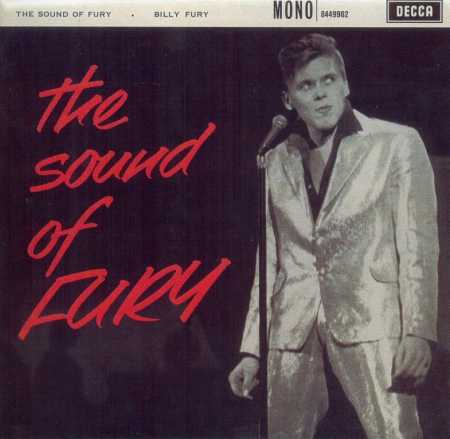 Billy Fury, was an internationally successful English pop singer from the late 1950s to the early 1960s, and remained an active songwriter until the 1980s. Rheumatic fever, which he first contracted as a child, damaged his heart and ultimately contributed to his death. An early British rock and roll (and film) star, he equalled The Beatles' record of 24 hits in the 1960s, and spent 332 weeks on the UK charts, without a chart-topping single or album. Allmusic journalist, Bruce Eder, stated, "His mix of rough-hewn good looks and unassuming masculinity, coupled with an underlying vulnerability, all presented with a good voice and some serious musical talent, helped turn Fury into a major rock and roll star in short order". Others have suggested that it was Fury's "Elvis Presley-influenced, hip-swivelling, and at times highly suggestive stage act." The Sound Of Fury was the first album released by Billy Fury in 1960. Described as "the best rock & roll album to come out of England's original beat boom of the late 1950s", every one of the ten songs was written by Fury, whereas the debut albums of most artists contain covers of already-popular songs. The album was recorded in Decca Studio 3, West Hampstead, London, on 14 April 1960. It featured Joe Brown on guitar, Reg Guest on piano, and bassists Bill Stark or Alan Weighell. Andy White, known for his performance in The Beatles' first single "Love Me Do", is the drummer on the album. Providing backing vocals were the Four Jays.01 - That's Love02 - My Advice03 - Phone Call04 - You Don't Know05 - Turn My Back On You06 - Don't Say It's Over07 - Since You've Been Gone08 - It's You I Need09 - Alright, Goodbye10 - Don't Leave Me This WayLINK Billy Fury, was an internationally successful English pop singer from the late 1950s to the early 1960s, and remained an active songwriter until the 1980s. Rheumatic fever, which he first contracted as a child, damaged his heart and ultimately contributed to his death. An early British rock and roll (and film) star, he equalled The Beatles' record of 24 hits in the 1960s, and spent 332 weeks on the UK charts, without a chart-topping single or album. Allmusic journalist, Bruce Eder, stated, "His mix of rough-hewn good looks and unassuming masculinity, coupled with an underlying vulnerability, all presented with a good voice and some serious musical talent, helped turn Fury into a major rock and roll star in short order". Others have suggested that it was Fury's "Elvis Presley-influenced, hip-swivelling, and at times highly suggestive stage act." The Sound Of Fury was the first album released by Billy Fury in 1960. Described as "the best rock & roll album to come out of England's original beat boom of the late 1950s", every one of the ten songs was written by Fury, whereas the debut albums of most artists contain covers of already-popular songs. The album was recorded in Decca Studio 3, West Hampstead, London, on 14 April 1960. It featured Joe Brown on guitar, Reg Guest on piano, and bassists Bill Stark or Alan Weighell. Andy White, known for his performance in The Beatles' first single "Love Me Do", is the drummer on the album. Providing backing vocals were the Four Jays.01 - That's Love02 - My Advice03 - Phone Call04 - You Don't Know05 - Turn My Back On You06 - Don't Say It's Over07 - Since You've Been Gone08 - It's You I Need09 - Alright, Goodbye10 - Don't Leave Me This WayLINK |
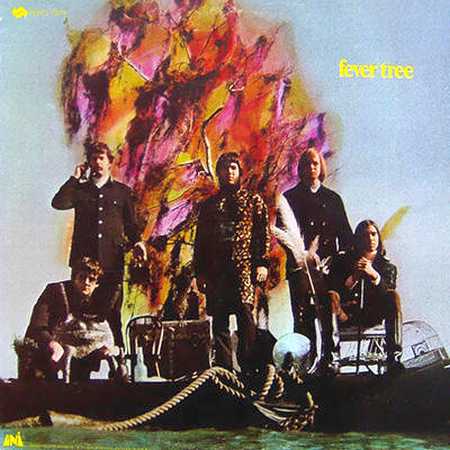 Fever Tree is a former American psychedelic rock band of the 1960s, chiefly known for their anthemic 1968 hit, "San Francisco Girls (Return of the Native)" (#91 Pop Singles). The band hailed from Houston, Texas and started in 1966 as folk rock outfit, The Bostwick Vines. They changed their name to Fever Tree a year later after the addition of keyboard player Rob Landes. Their fifteen minutes of fame arrived when their song "San Francisco Girls (Return of the Native)" reached #91 in the U.S. charts, sometime in late 1968. Like most of the band's material, it was written by the couple of Scott and Vivian Holtzman, who also were their producers. This four-minute track captured all the band's trademarks: Dennis Keller's incantation-like vocals, the quick shifting between slow parts with an almost sacral feeling and faster, more rock-oriented parts, and especially the searing guitar work by Michael Knust. Fever Tree also released their self-titled debut album, Fever Tree, in 1968, which charted at #156. Dennis Keller - vocals, Michael Stephen Knust - guitar, Rob Landes - synthesizer, organ, piano, E.E. "Bud" Wolfe - bass guitar and John Tuttle - drums.01 - Imitation Situation 1 (Toccata And Fugue)02 - Where Do You Go03 - San Franciscan Girls (Return Of The Native)04 - Ninety-Nine And One-Half05 - Man Who Paints The Pictures06 - Filligree And Shadow07 - The Sun Also Rises08 - Day Tripperwe Can Work It Out09 - Nowadays Clancy Can't Even Sing10 - Unlock My Door11 - Come With Me (Rainsong)LINK Fever Tree is a former American psychedelic rock band of the 1960s, chiefly known for their anthemic 1968 hit, "San Francisco Girls (Return of the Native)" (#91 Pop Singles). The band hailed from Houston, Texas and started in 1966 as folk rock outfit, The Bostwick Vines. They changed their name to Fever Tree a year later after the addition of keyboard player Rob Landes. Their fifteen minutes of fame arrived when their song "San Francisco Girls (Return of the Native)" reached #91 in the U.S. charts, sometime in late 1968. Like most of the band's material, it was written by the couple of Scott and Vivian Holtzman, who also were their producers. This four-minute track captured all the band's trademarks: Dennis Keller's incantation-like vocals, the quick shifting between slow parts with an almost sacral feeling and faster, more rock-oriented parts, and especially the searing guitar work by Michael Knust. Fever Tree also released their self-titled debut album, Fever Tree, in 1968, which charted at #156. Dennis Keller - vocals, Michael Stephen Knust - guitar, Rob Landes - synthesizer, organ, piano, E.E. "Bud" Wolfe - bass guitar and John Tuttle - drums.01 - Imitation Situation 1 (Toccata And Fugue)02 - Where Do You Go03 - San Franciscan Girls (Return Of The Native)04 - Ninety-Nine And One-Half05 - Man Who Paints The Pictures06 - Filligree And Shadow07 - The Sun Also Rises08 - Day Tripperwe Can Work It Out09 - Nowadays Clancy Can't Even Sing10 - Unlock My Door11 - Come With Me (Rainsong)LINK |
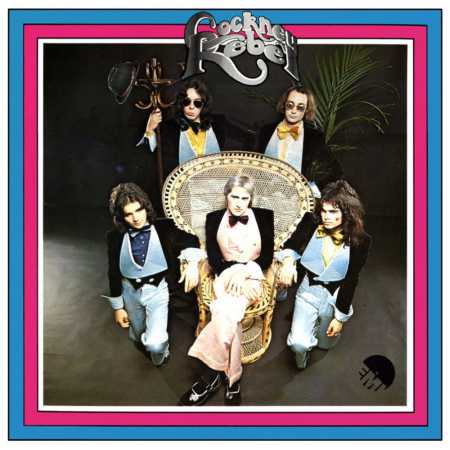 Steve Harley & Cockney Rebel are an English rock band from the early 1970s. Their music covers a range of styles from pop to progressive rock. Over the years they have had five albums in the UK Albums Chart and twelve singles in the UK Singles Chart. The Human Menagerie is the debut studio album by Cockney Rebel. Produced by Neil Harrison, it was released by EMI Records in November 1973. The album failed to appear on British or American charts. The album was recorded in June and July 1973 in Air Studios, London, produced by Neil Harrison. At that time the studios were located in Oxford Street above a department store. The 2004 re-release, contains the original single release of "Judy Teen" and the B side of the "Sebastian" single. Steve Harley ,vocals, Stuart Elliot ,percussion, Paul Jeffreys ,fender bass, Milton Reame-James ,keyboards ,Jean-Paul Crocker ,guitar, electric violin, mandolin.01 - Hideaway02 - What Ruthy Said03 - Loretta's Tale04 - Crazy Raver05 - Sebastian06 - Mirror Freak07 - My Only Vice08 - Muriel The Actor09 - Chameleon10 - Death Trip11 - Judy Teen (Bonus)12 - Rock And Roll Parade (Bonus)LINK Steve Harley & Cockney Rebel are an English rock band from the early 1970s. Their music covers a range of styles from pop to progressive rock. Over the years they have had five albums in the UK Albums Chart and twelve singles in the UK Singles Chart. The Human Menagerie is the debut studio album by Cockney Rebel. Produced by Neil Harrison, it was released by EMI Records in November 1973. The album failed to appear on British or American charts. The album was recorded in June and July 1973 in Air Studios, London, produced by Neil Harrison. At that time the studios were located in Oxford Street above a department store. The 2004 re-release, contains the original single release of "Judy Teen" and the B side of the "Sebastian" single. Steve Harley ,vocals, Stuart Elliot ,percussion, Paul Jeffreys ,fender bass, Milton Reame-James ,keyboards ,Jean-Paul Crocker ,guitar, electric violin, mandolin.01 - Hideaway02 - What Ruthy Said03 - Loretta's Tale04 - Crazy Raver05 - Sebastian06 - Mirror Freak07 - My Only Vice08 - Muriel The Actor09 - Chameleon10 - Death Trip11 - Judy Teen (Bonus)12 - Rock And Roll Parade (Bonus)LINK |
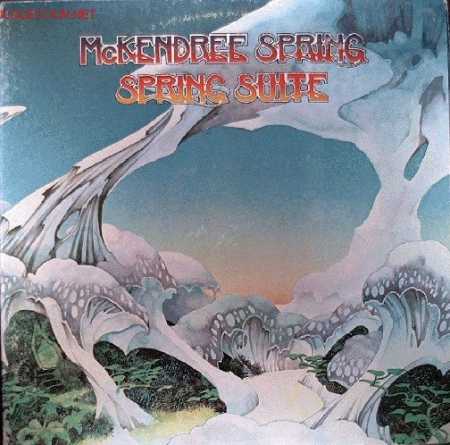 McKendree Spring was a folk-rock band. The band consisted of Fran McKendree (vocals & guitar), Fred Holman (bass), Dr. Michael Dreyfuss (electric violin, viola, Moog, Arp), Martin Slutsky (electric guitar). Christopher Bishop replaced Holman on bass as of the 1973 release Spring Suite. McKendree Spring was certainly not your ordinary American folk-rock group. They didn't take influences from the Byrds or CSNY. Dr. Michael Dreyfuss played violin, but you couldn't compare them to It's a Beautiful Day. The fact the group hailed from Upstate New York meant they didn't have to play by California rules. The band frequently had no drummer (although several of their albums did have drums, Spring Suite was not one of them). They released their first album in 1969 on Decca, and were often called the Three Dog Night of folk rock, likely because they had a habit of covering other people's songs, usually from singer/songwriters, like Neil Young's "Down by the River" and James Taylor's "Fire and Rain". But unlike Three Dog Night, who were obviously wanting big time commercial AM radio success (which they did), McKendree Spring didn't. They pretty much kept an East Coast cult following, mainly of the college crowd. 1973's Spring Suite was their fourth album, released on the MCA label.(Benjamin Miler)01 - Equinox02 - Winter03 - I Was Born04 - The Madman05 - The Girl06 - Today's The Day07 - The Storm08 - Growing09 - SpringLINK McKendree Spring was a folk-rock band. The band consisted of Fran McKendree (vocals & guitar), Fred Holman (bass), Dr. Michael Dreyfuss (electric violin, viola, Moog, Arp), Martin Slutsky (electric guitar). Christopher Bishop replaced Holman on bass as of the 1973 release Spring Suite. McKendree Spring was certainly not your ordinary American folk-rock group. They didn't take influences from the Byrds or CSNY. Dr. Michael Dreyfuss played violin, but you couldn't compare them to It's a Beautiful Day. The fact the group hailed from Upstate New York meant they didn't have to play by California rules. The band frequently had no drummer (although several of their albums did have drums, Spring Suite was not one of them). They released their first album in 1969 on Decca, and were often called the Three Dog Night of folk rock, likely because they had a habit of covering other people's songs, usually from singer/songwriters, like Neil Young's "Down by the River" and James Taylor's "Fire and Rain". But unlike Three Dog Night, who were obviously wanting big time commercial AM radio success (which they did), McKendree Spring didn't. They pretty much kept an East Coast cult following, mainly of the college crowd. 1973's Spring Suite was their fourth album, released on the MCA label.(Benjamin Miler)01 - Equinox02 - Winter03 - I Was Born04 - The Madman05 - The Girl06 - Today's The Day07 - The Storm08 - Growing09 - SpringLINK |
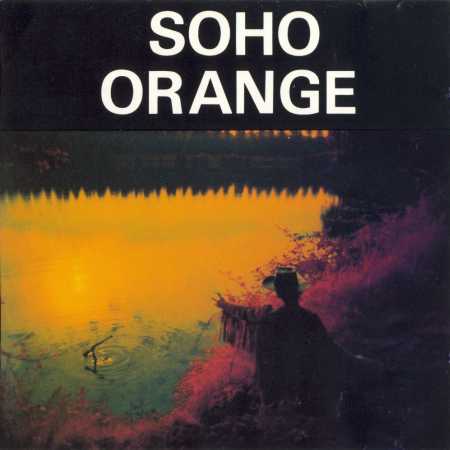
Hard Prog Rock band from Glasgow, Lanarkshire, United Kingdom. The best band among those who recorded for Jim West; they hailed from Glasgow and wove psychedelic textures rent by hardblues riffs played with punk aptitude. Collectors' initiative dug out of the vaults this submerged jewel originally taped at Central Scotland Studios, Falkirk in 1971.
01 - King Of The Road
02 - Mississippi Tales - The Wish-Tears
03 - Freedom Callin'
04 - Dream Queen
05 - Nightmare
06 - Seven Faces
LINK |
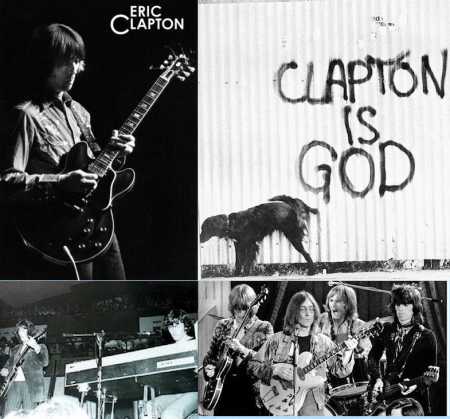 Many bands in the history of Eric Clapton. Some of them little known. Many bands in the history of Eric Clapton. Some of them little known... The first band Eric Clapton joined was The Roosters. Eric was asked to join the band following an audition and rehearsal at The Prince of Wales Pub in New Malden, England in January 1963. They disbanded in August 1963.(No known recording) Eric Clapton's Powerhouse was a British blues studio supergroup formed in 1966. Powerhouse was formed with full intention of being a short-lived studio project. The band starred Eric Clapton (guitar), and featured Paul Jones (harmonica) and Jack Bruce (bass) from Manfred Mann, Steve Winwood (vocals) and Pete York (drums) from the Spencer Davis Group, and Ben Palmer (piano) who had previously played with Clapton and Jones as a member of The Roosters. The Dirty Mac were a one-time English supergroup consisting of John Lennon, Eric Clapton, Keith Richards and Mitch Mitchell that Lennon put together for The Rolling Stones' TV special entitled The Rolling Stones Rock and Roll Circus. Recorded on 11 December 1968. The Plastic Ono Band is a conceptual supergroup formed by John Lennon and Yoko Ono in 1969 before the dissolution of the Beatles. Among the various other members of the band were Eric Clapton, two more Beatles (George Harrison and Ringo Starr), artist Klaus Voormann, future Yes drummer Alan White, members of Delaney and Bonnie, the Who's drummer Keith Moon, New York band Elephant's Memory, Billy Preston, Nicky Hopkins, Phil Spector, drummer Jim Keltner, and, in a 2009 revival, Sean Lennon.Free Creek was a band composed of many internationally renowned musical artists, including Eric Clapton, Jeff Beck, Keith Emerson, Mitch Mitchell and Linda Ronstadt, who recorded one album, in 1969, in a "super session" format. The recordings, made in 1969, were released in 1973
The Powerhouse - 1966
01 - I Want To Know
02 - Crossroads
03 - Stepping Out
Dirty Mac - 1968
04 - Mick Jagger's And John Lennon's Introduction Of The Dirty Mac
05 - Yer Blues
06 - Whole Lotta Yoko (The Dirty Mac & Yoko Ono)
Plastic Ono Band - 1969
07 - Blue Suede Shoes
08 - Dizzy Miss Lizzy
09 - Yer Blues
10 - Cold Turkey
11 - Give Peace A Chance
Free Creek - 1969
12 - Road Song
13 - Getting Back To Molly
14 - No One Knows
LINK |
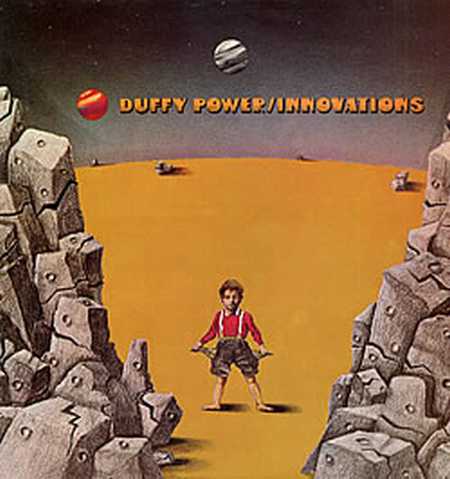 Duffy Power is an English blues and rock and roll singer, who achieved some success in the 1960s and has performed and recorded intermittently since then. He was discovered in 1959 by impresario Larry Parnes, singing at a talent show with his group Duffy and the Dreamers. He was renamed Duffy Power in the style of Parnes' other discoveries, such as Billy Fury, Marty Wilde, Vince Eager and Georgie Fame. He recorded a series of cover versions of such songs as "Dream Lover" and "Ain't She Sweet" as singles for the Fontana label over the next two years, but unlike some of his stablemates failed to achieve commercial success. Duffy left Parnes in 1961, suffering from depression. However, he was introduced by a friend to the growing London blues club scene, and in 1963 teamed up with Graham Bond, Jack Bruce, Ginger Baker and John McLaughlin to record "I Saw Her Standing There", one of the first cover versions of a Beatles song. He continued to record for Parlophone Records through the 1960s, both as a solo artist, often backed by top session musicians, and with Alexis Korner’s Blues Incorporated, but the critical acclaim for his performances failed to be matched by sales. Actually recorded in 1965-67, but released in 1971 on Transatlantic, Innovations, is truly an amazing record with participation from greats Ginger Baker, Jack Bruce, John McLaughlin, Terry Cox, and Danny Thompson. "...Before there was Cream, before there was the Mahavishnu Orchestra, and before there was Pentangle, there was Duffy Power” (Richie Unterberger).01 - Rosie02 - Leaving Blues03 - It's Funny04 - Coming Round No More05 - Give Me One06 - Mary Open The Door07 - Help Me08 - Louisiana Blues09 - Little Boy Blue10 - Exactly Like You11 - One Night12 - There You Go13 - Red, White And BlueLINK Duffy Power is an English blues and rock and roll singer, who achieved some success in the 1960s and has performed and recorded intermittently since then. He was discovered in 1959 by impresario Larry Parnes, singing at a talent show with his group Duffy and the Dreamers. He was renamed Duffy Power in the style of Parnes' other discoveries, such as Billy Fury, Marty Wilde, Vince Eager and Georgie Fame. He recorded a series of cover versions of such songs as "Dream Lover" and "Ain't She Sweet" as singles for the Fontana label over the next two years, but unlike some of his stablemates failed to achieve commercial success. Duffy left Parnes in 1961, suffering from depression. However, he was introduced by a friend to the growing London blues club scene, and in 1963 teamed up with Graham Bond, Jack Bruce, Ginger Baker and John McLaughlin to record "I Saw Her Standing There", one of the first cover versions of a Beatles song. He continued to record for Parlophone Records through the 1960s, both as a solo artist, often backed by top session musicians, and with Alexis Korner’s Blues Incorporated, but the critical acclaim for his performances failed to be matched by sales. Actually recorded in 1965-67, but released in 1971 on Transatlantic, Innovations, is truly an amazing record with participation from greats Ginger Baker, Jack Bruce, John McLaughlin, Terry Cox, and Danny Thompson. "...Before there was Cream, before there was the Mahavishnu Orchestra, and before there was Pentangle, there was Duffy Power” (Richie Unterberger).01 - Rosie02 - Leaving Blues03 - It's Funny04 - Coming Round No More05 - Give Me One06 - Mary Open The Door07 - Help Me08 - Louisiana Blues09 - Little Boy Blue10 - Exactly Like You11 - One Night12 - There You Go13 - Red, White And BlueLINK
|
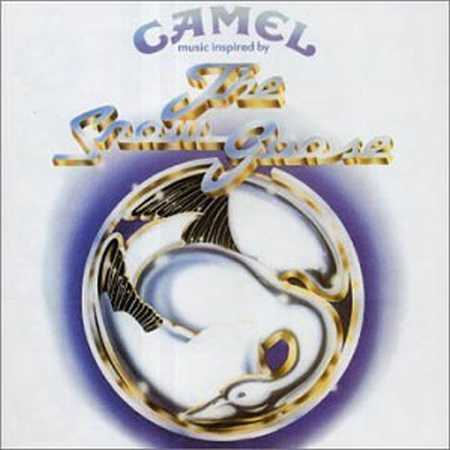 Camel are an English progressive rock band formed in 1971. Music Inspired by The Snow Goose is the third album by the band, released in 1975. The success of the White Rider suite (based on J. R. R. Tolkien's The Lord of the Rings and appearing on the band's previous album, Mirage), inspired the group to write more novel-inspired conceptual suites. The band considered several novels on which to base their next album. For a time they settled on Siddhartha, by Hermann Hesse, and some songs were written before the idea was abandoned in favor of Paul Gallico's novel The Snow Goose. The album's name, originally simply "The Snow Goose", was altered to accommodate legal protests by Gallico. The album was originally due to feature lyrics based around Gallico's text, but due to his objections, an instrumental was made instead. The album reached silver status in 1981, and is considered by many to be their most accessible work. It is remarkable for having no lyrics and orchestral (plus rock) instrumentation. This, along with the band's subsequent release Moonmadness, is considered by fans to be the band's greatest albums.01 - The Great Marsh02 - Rhayader03 - Rhayader Goes To Town04 - Sanctuary05 - Fritha06 - The Snow Goes07 - Friendship08 - Migration09 - Rhayader Alone10 - Flight Of The Snow Goose11 - Preparation12 - Dunkirk13 - Epitaph14 - Fritha Alone15 - La Princesse Perdue16 - The Great MarshLINK Camel are an English progressive rock band formed in 1971. Music Inspired by The Snow Goose is the third album by the band, released in 1975. The success of the White Rider suite (based on J. R. R. Tolkien's The Lord of the Rings and appearing on the band's previous album, Mirage), inspired the group to write more novel-inspired conceptual suites. The band considered several novels on which to base their next album. For a time they settled on Siddhartha, by Hermann Hesse, and some songs were written before the idea was abandoned in favor of Paul Gallico's novel The Snow Goose. The album's name, originally simply "The Snow Goose", was altered to accommodate legal protests by Gallico. The album was originally due to feature lyrics based around Gallico's text, but due to his objections, an instrumental was made instead. The album reached silver status in 1981, and is considered by many to be their most accessible work. It is remarkable for having no lyrics and orchestral (plus rock) instrumentation. This, along with the band's subsequent release Moonmadness, is considered by fans to be the band's greatest albums.01 - The Great Marsh02 - Rhayader03 - Rhayader Goes To Town04 - Sanctuary05 - Fritha06 - The Snow Goes07 - Friendship08 - Migration09 - Rhayader Alone10 - Flight Of The Snow Goose11 - Preparation12 - Dunkirk13 - Epitaph14 - Fritha Alone15 - La Princesse Perdue16 - The Great MarshLINK |
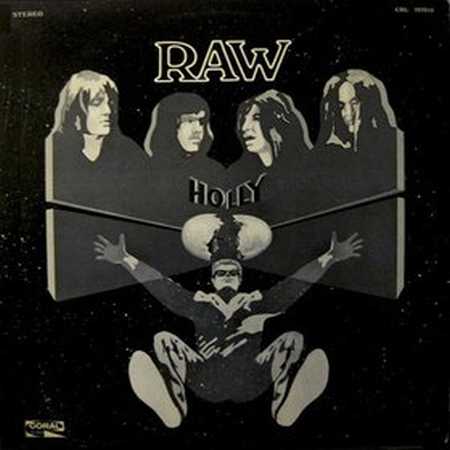 Raw Holly is a tribute album of sorts to Buddy Holly hits by the British band Raw which was produced by veteran British musician Miki Dallon and featuring the vocals of Ian Campbell and the guitar & sitar of Zed Jenkins. Ironically, the album was released on Holly’s U. S. label Coral Records. (Jack Dominilla)... The album was recorded in 1969 in Central Sound, Denmark Street. Miki Dallon was the guy who did the record deal with Young Blood in UK and Coral in US. He had nothing to do with the recording. A court case ensued and the album was released under the name of Raw Holly. As a Band "Raw Holly” does not and never did exist. The band, New York Public Library and Andy Curtis produced, arranged and played on the album.(Morrison)... The new NYPL line-up recorded an album of Buddy Holly songs, but contractual difficulties and court orders ensued. Without any say in the matter, the album was released as "Raw Holly" in 1970 in the US and Germany.(NYPL website)01 - Raining In My Heart02 - Baby My Heart03 - Little Baby04 - Well All Right05 - Love's Made A Fool Of You06 - Rock Me My Baby07 - Midnight Shift08 - Maybe Baby09 - Listen To Me10 - What To Do11 - Not Fade AwayLINK Raw Holly is a tribute album of sorts to Buddy Holly hits by the British band Raw which was produced by veteran British musician Miki Dallon and featuring the vocals of Ian Campbell and the guitar & sitar of Zed Jenkins. Ironically, the album was released on Holly’s U. S. label Coral Records. (Jack Dominilla)... The album was recorded in 1969 in Central Sound, Denmark Street. Miki Dallon was the guy who did the record deal with Young Blood in UK and Coral in US. He had nothing to do with the recording. A court case ensued and the album was released under the name of Raw Holly. As a Band "Raw Holly” does not and never did exist. The band, New York Public Library and Andy Curtis produced, arranged and played on the album.(Morrison)... The new NYPL line-up recorded an album of Buddy Holly songs, but contractual difficulties and court orders ensued. Without any say in the matter, the album was released as "Raw Holly" in 1970 in the US and Germany.(NYPL website)01 - Raining In My Heart02 - Baby My Heart03 - Little Baby04 - Well All Right05 - Love's Made A Fool Of You06 - Rock Me My Baby07 - Midnight Shift08 - Maybe Baby09 - Listen To Me10 - What To Do11 - Not Fade AwayLINK |
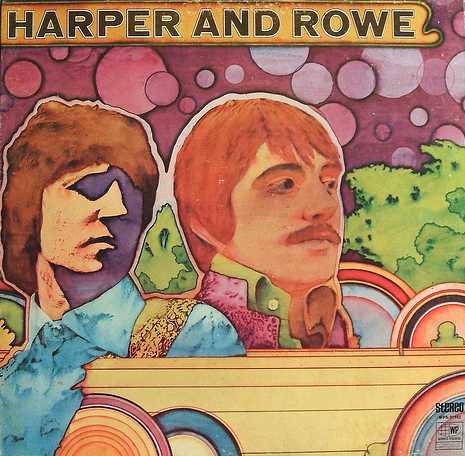 A psyche pop duet, nothing is known about them and their backing group. Their only album was produced by Ed Ver Schure and Ralph Murphy (who also wrote eight of the twelve tracks) and they were managed by William McEuen (who also managed Nitty Gritty Dirt Band, Sunshine Company, Hourglass). The album is quite patchy and contains folk/pop (Hello Sleepy Sidewalks), rock (Love Machine, penned by Gordon and Griffin), and orchestrated pop (Here Comes Yesterday Again). One of the best track is The Dweller, with flute and guitars, composed by Marcellino and Larson. It is beginning to interest some collectors. (Stephane Rebeschini). "The songs on this album show how two almost completely opposite musical talents combine and compliment each other, to produce an album that rambles with ease from folk material like "Good Times, Bad Times” and "Hello Sleepy Sidewalk” right across to pure rock in "Love Machine” Harper & Rowe cannot be placed in any particular bag. The more you listen, the more apparent this becomes…” (Album Liner)01 - Here Comes Yesterday Aga02 - The Dweller03 - Picture Me High04 - Where Is She05 - You And Me (Me And You)06 - Love Machine07 - Keep On Dancing08 - Good Times, Bad Times09 - Strange How People Chang10 - Wake Me When It's Over11 - Hello Sleepy Sidewalk12 - Hold MeLINK A psyche pop duet, nothing is known about them and their backing group. Their only album was produced by Ed Ver Schure and Ralph Murphy (who also wrote eight of the twelve tracks) and they were managed by William McEuen (who also managed Nitty Gritty Dirt Band, Sunshine Company, Hourglass). The album is quite patchy and contains folk/pop (Hello Sleepy Sidewalks), rock (Love Machine, penned by Gordon and Griffin), and orchestrated pop (Here Comes Yesterday Again). One of the best track is The Dweller, with flute and guitars, composed by Marcellino and Larson. It is beginning to interest some collectors. (Stephane Rebeschini). "The songs on this album show how two almost completely opposite musical talents combine and compliment each other, to produce an album that rambles with ease from folk material like "Good Times, Bad Times” and "Hello Sleepy Sidewalk” right across to pure rock in "Love Machine” Harper & Rowe cannot be placed in any particular bag. The more you listen, the more apparent this becomes…” (Album Liner)01 - Here Comes Yesterday Aga02 - The Dweller03 - Picture Me High04 - Where Is She05 - You And Me (Me And You)06 - Love Machine07 - Keep On Dancing08 - Good Times, Bad Times09 - Strange How People Chang10 - Wake Me When It's Over11 - Hello Sleepy Sidewalk12 - Hold MeLINK |
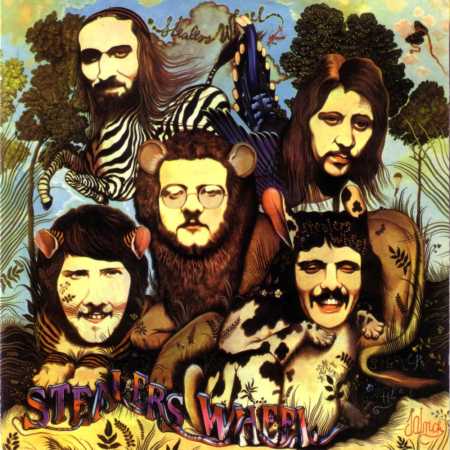 Stealers Wheel are a Scottish folk rock/rock band formed in Paisley, Renfrewshire in 1972 by former school friends Joe Egan and Gerry Rafferty. The band broke up in 1975 and re-formed without Egan and Rafferty in 2008. Stealers Wheel is the debut 1972 album by Stealers Wheel. Gerry Rafferty - guitar, vocals, Joe Egan - keyboards, vocals, Tony Williams - bass, Rod Coombes - drums, Paul Pilnick - lead guitar and Mike Stoller - keyboards, producer01 - Late Again02 - Stuck In The Middle03 - Another Meaning04 - I Get By05 - Outside Looking In06 - Johnny's Song07 - Next To Me08 - Jose09 - Gets So Lonely10 - You Put Something Better Inside MeLINK Stealers Wheel are a Scottish folk rock/rock band formed in Paisley, Renfrewshire in 1972 by former school friends Joe Egan and Gerry Rafferty. The band broke up in 1975 and re-formed without Egan and Rafferty in 2008. Stealers Wheel is the debut 1972 album by Stealers Wheel. Gerry Rafferty - guitar, vocals, Joe Egan - keyboards, vocals, Tony Williams - bass, Rod Coombes - drums, Paul Pilnick - lead guitar and Mike Stoller - keyboards, producer01 - Late Again02 - Stuck In The Middle03 - Another Meaning04 - I Get By05 - Outside Looking In06 - Johnny's Song07 - Next To Me08 - Jose09 - Gets So Lonely10 - You Put Something Better Inside MeLINK |
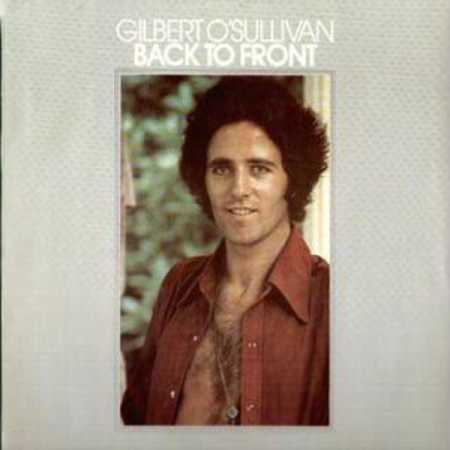 Gilbert O'Sullivan is an Irish singer-songwriter, best known for his early 1970s hits "Alone Again (Naturally)", "Clair" and "Get Down". The music magazine, Record Mirror, voted him the No. 1 UK male singer of 1972. Worldwide he has charted sixteen top forty discs; including six number one songs, the first of which was 1970's "Nothing Rhymed". In 1972, O'Sullivan reached international stardom with the self-penned ballad, "Alone Again (Naturally)", which reached No. 3 in UK; No. 1 in the U.S., spending six weeks at No. 1 on the Billboard Hot 100 chart and selling nearly two million copies; No. 2 in New Zealand (11 weeks on the charts in total); No. 1 in Canada for 2 weeks (13 weeks in the Top 40); and No. 1 in Japan (21 weeks on the chart). The song earned O'Sullivan his first gold disc. O'Sullivan followed this success with the songs "Clair", which reached No. 2 in the United States on the Hot 100 and No. 1 in Canada (14 weeks in the Canadian Top 40); "Out of the Question" (also from Back To Front), which reached No. 14 in Canada; and "Get Down" (1973, from the album I'm A Writer Not A Fighter), which reached No. 1 in the UK and No. 7 in both the U.S. and Canada. Back to Front is the second studio album by Gilbert O'Sullivan.01 - Intro I Hope You'll Stay02 - In My Hole03 - Clair04 - That's Love05 - Can I Go With You06 - But I'm Not - Outro07 - I'm In Love With You08 - Who Was It09 - What Could Be Nicer10 - Out Of The Question11 - The Golden Rule12 - I'm Leaving - Outro13 - Alone Again (Naturally)14 - Ooh-Wakka-Doo-Wakka-DayLINK Gilbert O'Sullivan is an Irish singer-songwriter, best known for his early 1970s hits "Alone Again (Naturally)", "Clair" and "Get Down". The music magazine, Record Mirror, voted him the No. 1 UK male singer of 1972. Worldwide he has charted sixteen top forty discs; including six number one songs, the first of which was 1970's "Nothing Rhymed". In 1972, O'Sullivan reached international stardom with the self-penned ballad, "Alone Again (Naturally)", which reached No. 3 in UK; No. 1 in the U.S., spending six weeks at No. 1 on the Billboard Hot 100 chart and selling nearly two million copies; No. 2 in New Zealand (11 weeks on the charts in total); No. 1 in Canada for 2 weeks (13 weeks in the Top 40); and No. 1 in Japan (21 weeks on the chart). The song earned O'Sullivan his first gold disc. O'Sullivan followed this success with the songs "Clair", which reached No. 2 in the United States on the Hot 100 and No. 1 in Canada (14 weeks in the Canadian Top 40); "Out of the Question" (also from Back To Front), which reached No. 14 in Canada; and "Get Down" (1973, from the album I'm A Writer Not A Fighter), which reached No. 1 in the UK and No. 7 in both the U.S. and Canada. Back to Front is the second studio album by Gilbert O'Sullivan.01 - Intro I Hope You'll Stay02 - In My Hole03 - Clair04 - That's Love05 - Can I Go With You06 - But I'm Not - Outro07 - I'm In Love With You08 - Who Was It09 - What Could Be Nicer10 - Out Of The Question11 - The Golden Rule12 - I'm Leaving - Outro13 - Alone Again (Naturally)14 - Ooh-Wakka-Doo-Wakka-DayLINK |
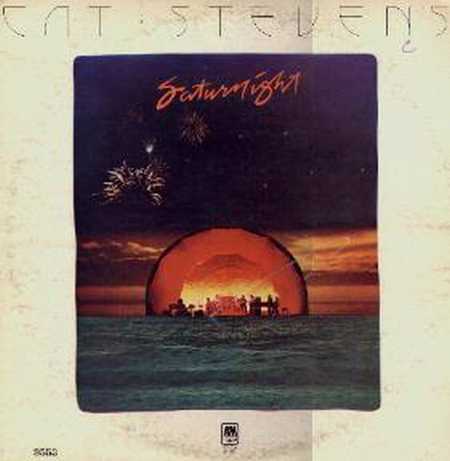 Saturnight, Live in Tokyo, is a 1974 album by Cat Stevens. It was released only in Japan, to support UNICEF. Cat Stevens – vocals, guitars, synthesizers, percussion, Alun Davies – guitars, backing vocals, Jean Roussel – keyboards, Bruce Lynch – bass, Gerry Conway – drums, percussion, backing vocals, Larry Steele – guitars, percussion, backing vocals, Jim Cregan – guitar, Anna Peacock – backing vocals, Suzanne Lynch - backing vocals01 - Wild World02 - Oh Very Young03 - Sitting04 - Where Do The Children Play05 - Lady D'arbanville06 - Another Saturday Night07 - Hard Headed Woman08 - Peace Train09 - Father And Son10 - King Of Trees11 - A Bad Penny12 - BitterblueLINK Saturnight, Live in Tokyo, is a 1974 album by Cat Stevens. It was released only in Japan, to support UNICEF. Cat Stevens – vocals, guitars, synthesizers, percussion, Alun Davies – guitars, backing vocals, Jean Roussel – keyboards, Bruce Lynch – bass, Gerry Conway – drums, percussion, backing vocals, Larry Steele – guitars, percussion, backing vocals, Jim Cregan – guitar, Anna Peacock – backing vocals, Suzanne Lynch - backing vocals01 - Wild World02 - Oh Very Young03 - Sitting04 - Where Do The Children Play05 - Lady D'arbanville06 - Another Saturday Night07 - Hard Headed Woman08 - Peace Train09 - Father And Son10 - King Of Trees11 - A Bad Penny12 - BitterblueLINK |
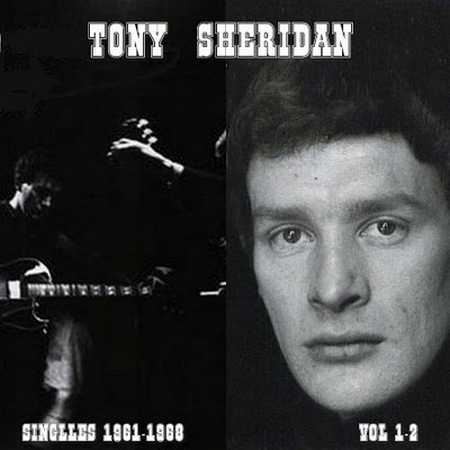 Tony Sheridan, is an English rock and roll singer-songwriter and guitarist. He is best known as an early collaborator of The Beatles, (though the record was labelled as being with "The Beat Brothers") and one of two non-Beatles (the other being Billy Preston) to receive label performance credit on a record with the group. n his early life, Sheridan was influenced by his parents' interest in classical music, and by age seven, he had learned to play the violin. He eventually came to play guitar, and in 1956, formed his first band. He showed enough talent that he soon found himself playing in London's "Two I's" club for some six months straight, but at the same time he also found himself reduced to sleeping in doorways. In 1958, at 18, he began appearing on the BBC's Oh Boy, playing electric guitar on such early Rock classics as "Blue Suede Shoes", "Glad All Over", "Mighty Mighty Man" and "Oh Boy!". Sheridan was soon viewed as a very promising guitarist and as such was employed backing a number of singers, reportedly including Gene Vincent and Conway Twitty while they were in England. He also played guitar for Cherry Wainer on her recording of "Happy Organ". While performing in Hamburg between 1960 and 1963, Sheridan employed various backup bands, most of which were really "pickup bands", or simply an amalgamam of various musicians, rather than a group proper. However, in 1961, the young Beatles (with their line-up at the time of John Lennon, Paul McCartney, George Harrison and Pete Best) who had met and admired Sheridan during their first visit to Hamburg in 1960, and who openly worked with him on their second visit, became even closer. The relationship was largely symbiotic, with the Beatles sometimes backing Sheridan, but with Sheridan often joining the Beatles during their own sets back them playing guitar. Vol. 1 (The Singles 1961-1964)01 - My Bonnie (Dt. Intro)02 - The Saints03 - Ich Lieb Dich So04 - Der Kiss-Me Song05 - You Are My Sunshine06 - Swanee River07 - Madison Kid08 - Let's Dance09 - Ruby Baby10 - What'd I Say11 - Veedeboom Slop Slop12 - Let's Slop13 - Jambalaya14 - Will You Still Love Me Tomorrow15 - Skinny Minny16 - Sweet Georgia BrownVol. 2 (The Singles 1965 – 1968)01 - Sweet Georgia Brown02 - Nobody's Child03 - Do-Re-Mi04 - My Babe05 - Shake It Some More06 - La Bamba07 - Vive L'amour08 - Hey! Ba-Ba-Re-Bop09 - Just You And Me10 - The Creep11 - Wolgalied12 - Alles Aus Liebe Zu Dir13 - Ich Will Bei Dir Bleiben14 - Ich Lass' Dich Nie Mehr Wieder Geh'n15 - Jailhouse Rock16 - Skinny MinnyLINK Tony Sheridan, is an English rock and roll singer-songwriter and guitarist. He is best known as an early collaborator of The Beatles, (though the record was labelled as being with "The Beat Brothers") and one of two non-Beatles (the other being Billy Preston) to receive label performance credit on a record with the group. n his early life, Sheridan was influenced by his parents' interest in classical music, and by age seven, he had learned to play the violin. He eventually came to play guitar, and in 1956, formed his first band. He showed enough talent that he soon found himself playing in London's "Two I's" club for some six months straight, but at the same time he also found himself reduced to sleeping in doorways. In 1958, at 18, he began appearing on the BBC's Oh Boy, playing electric guitar on such early Rock classics as "Blue Suede Shoes", "Glad All Over", "Mighty Mighty Man" and "Oh Boy!". Sheridan was soon viewed as a very promising guitarist and as such was employed backing a number of singers, reportedly including Gene Vincent and Conway Twitty while they were in England. He also played guitar for Cherry Wainer on her recording of "Happy Organ". While performing in Hamburg between 1960 and 1963, Sheridan employed various backup bands, most of which were really "pickup bands", or simply an amalgamam of various musicians, rather than a group proper. However, in 1961, the young Beatles (with their line-up at the time of John Lennon, Paul McCartney, George Harrison and Pete Best) who had met and admired Sheridan during their first visit to Hamburg in 1960, and who openly worked with him on their second visit, became even closer. The relationship was largely symbiotic, with the Beatles sometimes backing Sheridan, but with Sheridan often joining the Beatles during their own sets back them playing guitar. Vol. 1 (The Singles 1961-1964)01 - My Bonnie (Dt. Intro)02 - The Saints03 - Ich Lieb Dich So04 - Der Kiss-Me Song05 - You Are My Sunshine06 - Swanee River07 - Madison Kid08 - Let's Dance09 - Ruby Baby10 - What'd I Say11 - Veedeboom Slop Slop12 - Let's Slop13 - Jambalaya14 - Will You Still Love Me Tomorrow15 - Skinny Minny16 - Sweet Georgia BrownVol. 2 (The Singles 1965 – 1968)01 - Sweet Georgia Brown02 - Nobody's Child03 - Do-Re-Mi04 - My Babe05 - Shake It Some More06 - La Bamba07 - Vive L'amour08 - Hey! Ba-Ba-Re-Bop09 - Just You And Me10 - The Creep11 - Wolgalied12 - Alles Aus Liebe Zu Dir13 - Ich Will Bei Dir Bleiben14 - Ich Lass' Dich Nie Mehr Wieder Geh'n15 - Jailhouse Rock16 - Skinny MinnyLINK |
« 1 2 ... 7 8 9 10 11 ... 50 51 » |
|
Calendar
| « February 2026 » |
| Su |
Mo |
Tu |
We |
Th |
Fr |
Sa |
| 1 | 2 | 3 | 4 | 5 | 6 | 7 | | 8 | 9 | 10 | 11 | 12 | 13 | 14 | | 15 | 16 | 17 | 18 | 19 | 20 | 21 | | 22 | 23 | 24 | 25 | 26 | 27 | 28 |
Statistics
Total online: 1 Guests: 1 Users: 0
|






















